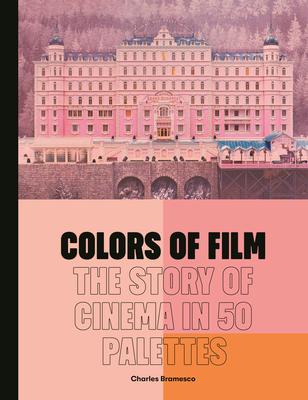Taking you on from the earliest feature films to today, Colors of Film introduces 50 iconic movies and explains the pivotal role that color played in their success.
The use of color is an essential part of film. It has the power to evoke powerful emotions, provide subtle psychological symbolism and act as a narrative device.
Wes Anderson's pastels and muted tones are aesthetically pleasing, but his careful use of color also acts as a shorthand for interpreting emotion. Moonlight(2016, dir. Barry Jenkins) cinematographer (James Laxton) and colorist (Alex Bickel) spent 100 hours fine-tuning the saturation and hues of the footage so that the use of color evolved in line with the growth of the protagonist through the film. And let's not forget Schindler's List (1993, dir. Steven Spielberg), in which a bold flash of red against an otherwise black-and-white film is used as a powerful symbol of life, survival and death. In Colors of Film, film critic Charles Bramesco introduces an element of cinema that is often overlooked, yet has been used in extraordinary ways. Using infographic color palettes, and stills from the movies, this is a lively and fresh approach to film for cinema-goers and color lovers alike. He also explores in fascinating detail how the development of technologies have shaped the course of modern cinema, from how the feud between Kodak and Fujifilm shaped the color palettes of the 20th Century's greatest filmakers, to how the advent of computer technology is creating a digital wonderland for modern directors in which anything is possible. Filled with sparkling insights and fascinating accounts from the history of cinema, Colors of Film is an indispensable guide to one of the most important visual elements in the medium of film.